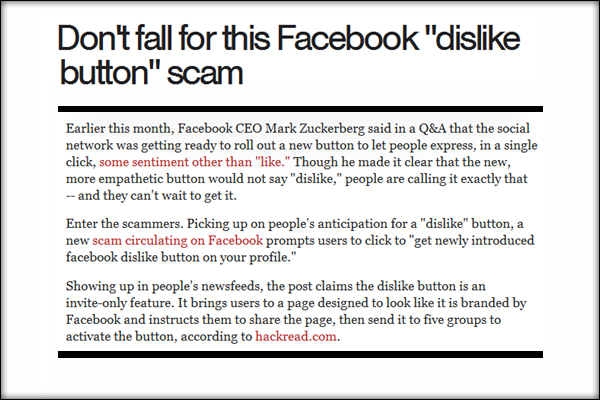Facebook Impersonation Scam
Facebook Impersonation Scams involve fake profiles mimicking real accounts to deceive users, gather personal data, or perpetrate fraud. Stay vigilant and know how to spot the signs.
FACEBOOK: A DOMINANT FORCE IN THE SOCIAL MEDIA LANDSCAPE
Facebook stands out as the premier social networking platform worldwide. Used daily by countless individuals, it serves as a digital touchpoint, allowing users to connect with family, friends, and colleagues. Beyond its role in personal interactions, Facebook has evolved into a dynamic platform for sharing images, videos, and a myriad of other engaging content. In recent years, businesses and professionals have leveraged Facebook to amplify their digital footprint, using it for social media optimization, marketing, and broader digital marketing campaigns. This vast congregation of users offers endless opportunities for interaction and networking. However, its widespread popularity also attracts scammers. With such a vast user base, it becomes an attractive hunting ground for fraudsters looking to exploit connections and unsuspecting users.
NAVIGATING THE MAZE OF FACEBOOK SCAMS
Scammers have long targeted Facebook, employing tactics like hacking, creating fake profiles, and other deceptive methods. A particularly insidious technique gaining traction is the Facebook impersonation scam. Here, fraudsters first compromise a user's profile. Once in control, they approach the victim's contacts, presenting varied schemes to illicit money or information. Unsuspecting individuals, believing the messages come from a trusted friend, often fall prey to these overtures. The true nature of the scam usually only comes to light when the legitimate profile owner detects the breach and informs their contacts. By then, however, the scammer may have already inflicted damage or fraud. Awareness and vigilance are crucial in spotting and thwarting such impersonation attempts.
DECONSTRUCTING THE FACEBOOK IMPERSONATION SCAM:
In a Facebook impersonation scam, cybercriminals compromise a user's account, gaining unauthorized access to their personal data. Once in control, the perpetrator sifts through the victim's friend list, reaching out with various deceitful schemes. These can range from soliciting money transfers to extracting sensitive personal information. Essentially, the scam involves hijacking a user's account to exploit their contacts under the guise of their trusted identity. Many have reported unexpected solicitations for money, access codes, and other confidential details, only later connecting these to the impersonation scam. Here are some illustrative examples of the lengths to which scammers go, manipulating the trust of unsuspecting individuals by assuming the digital identity of someone they know.
GUIDELINES TO SAFEGUARD AGAINST FACEBOOK IMPERSONATION SCAMS
Exercising caution and following specific best practices are crucial in sidestepping Facebook impersonation scams. Here are essential security measures to help you steer clear of such deceptive tactics
- Avoid using simplistic passwords. Sophisticated scammers often have tools that can decipher weak passwords, putting your Facebook account at risk.
- Diversify your passwords. Using the same password across multiple accounts is a common pitfall. If one password is compromised, all your accounts become vulnerable.
- Be wary of unfamiliar friend requests. Accepting requests from unknown individuals can be an entry point for scammers to scrutinize and exploit your profile.
- Utilize Facebook's in-built security features. Implementing measures like two-factor authentication can enhance the safety of your account considerably.
- Exercise caution with public Wi-Fi networks. Although convenient, these networks can be a gateway for scammers to access your login credentials.
- Regularly review and optimize the security settings on Facebook to ensure your account's integrity.
EXAMPLES OF FACEBOOK IMPERSONATION SCAM
Example 1 :-
In one illustrative case, a victim's Facebook account was compromised. The scammer swiftly identified the victim's parents from their friends list and sent a request for funds. Unaware of the account breach, the parents and relatives, believing the plea came from their loved one, willingly transferred the requested amount. When some victims eventually realized their profiles were hijacked, the fraudsters then threatened them with the release or misuse of their personal data, photos, and other sensitive information stored on Facebook.
Example 2 :-
The example provided highlights yet another facet of Facebook impersonation scams. In this instance, a scammer, having accessed a victim's profile, targeted one of the victim's friends. They sought the friend's mobile number, subsequently requested access codes sent to that number, and ran up charges on the associated phone bill. Tragically, the unsuspecting friend incurred financial losses due to the impersonating scammer's deceit.
Example 3 :-
The example provided illustrates yet another dimension of the Facebook impersonation scam, highlighting instances where the friends of the primary victim also suffer financial losses at the hands of the scammer.
In such impersonation scams, the ripple effects are profound. It's not just the main account holder — whose profile has been compromised — who's vulnerable. Every friend connected to that hacked Facebook account faces a heightened risk of being deceived and potentially scammed.






